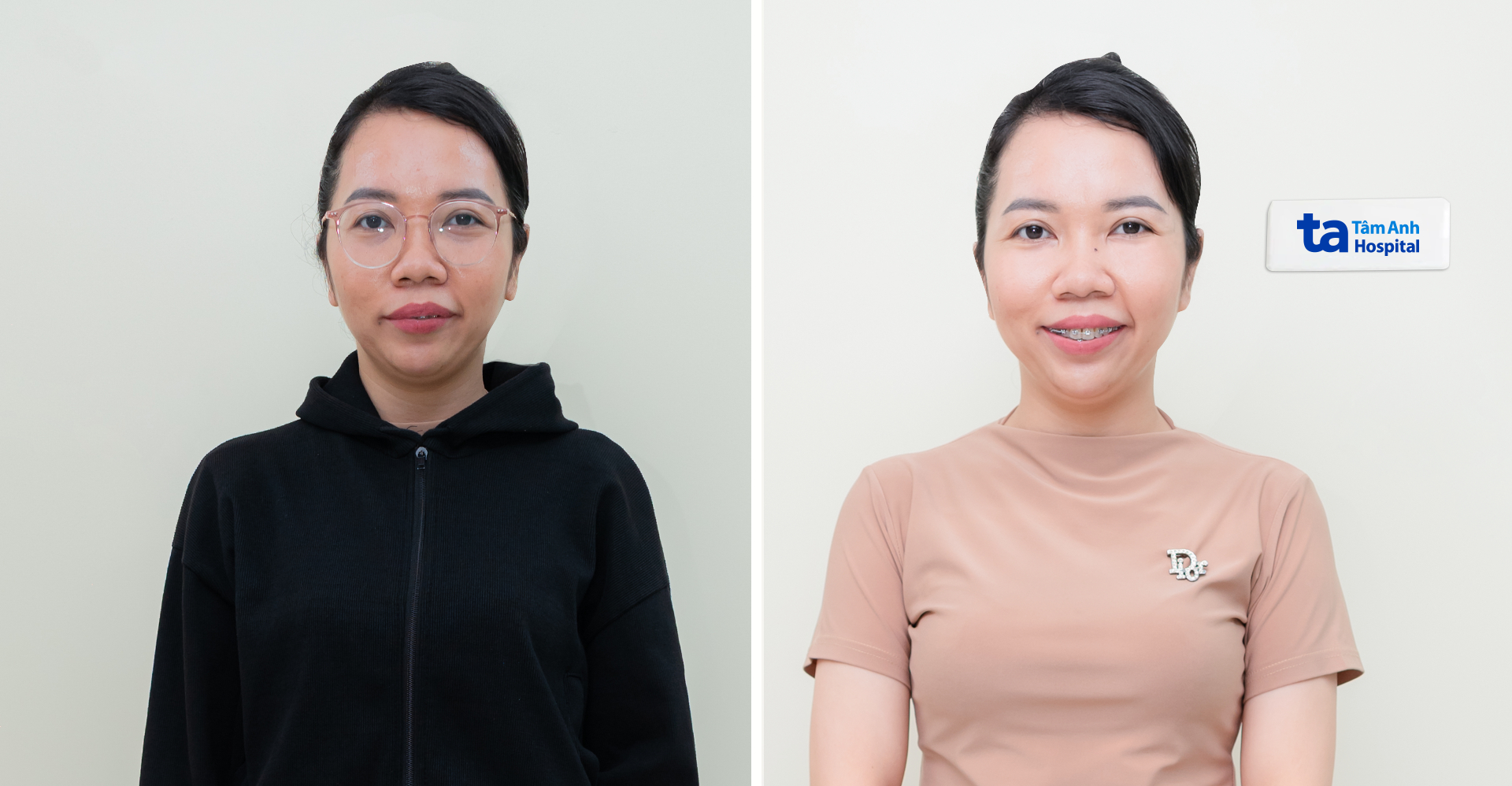Mai's glasses not only hampered her daily life but also prevented her from enjoying activities like high-impact sports. Without her glasses, everything was blurry, causing headaches, dizziness, and disorientation. Contact lenses caused allergic reactions, dryness, and redness, similar to conjunctivitis. For years, the fear of post-operative complications deterred her from considering surgery.
During her visit to Tam Anh General Hospital in Ho Chi Minh City, Mai received a personalized treatment plan. Dr. Dinh Trung Nghia, Deputy Director of the High-Tech Eye Center, ordered a corneal topography, retinal tomography, fundus examination, B-scan ultrasound, blood tests, and a pre-anesthesia evaluation to assess her overall health. The screening confirmed she was eligible for refractive surgery.
The surgery, known as Femtosecond Lasik, was performed in two phases. First, a corneal flap was created using a high-speed femtosecond laser. The Visumax 800 device precisely cuts the tissue in 7 seconds, minimizing discomfort.
 |
Dr. Nghia performs eye surgery on Mai. Photo: Tam Anh General Hospital |
Dr. Nghia performs eye surgery on Mai. Photo: Tam Anh General Hospital
In the second phase, the parameters were customized to Mai's eye measurements. After lifting the corneal flap of her left eye, Dr. Nghia used an excimer laser to remove the underlying corneal tissue, correcting the refractive error. The flap was then repositioned without stitches, allowing it to heal naturally. The same procedure was repeated on her right eye. Within a day, Mai's vision recovered to 80%, reaching 20/20 by the second day.
 |
Mai before and after her vision correction surgery. Photo: Tam Anh General Hospital |
Mai before and after her vision correction surgery. Photo: Tam Anh General Hospital
To promote healing and reduce the risk of regression, Dr. Nghia recommended adequate rest. For those who frequently use computers, he advised following the 20-20-20 rule: every 20 minutes, take a 20-second break and look at something 20 feet away to reduce eye strain. Regular blinking helps keep eyes moist, preventing dryness and irritation. Artificial tears are recommended for the first 3-6 months to lubricate and aid in the recovery of the ocular surface—a common post-laser surgery issue. Maintaining a healthy lifestyle with 7-8 hours of sleep per night and avoiding late nights can also help prevent eye strain and reduce the risk of myopia recurrence.
Duc Tri
| Readers can submit questions about eye diseases here for doctors to answer. |












